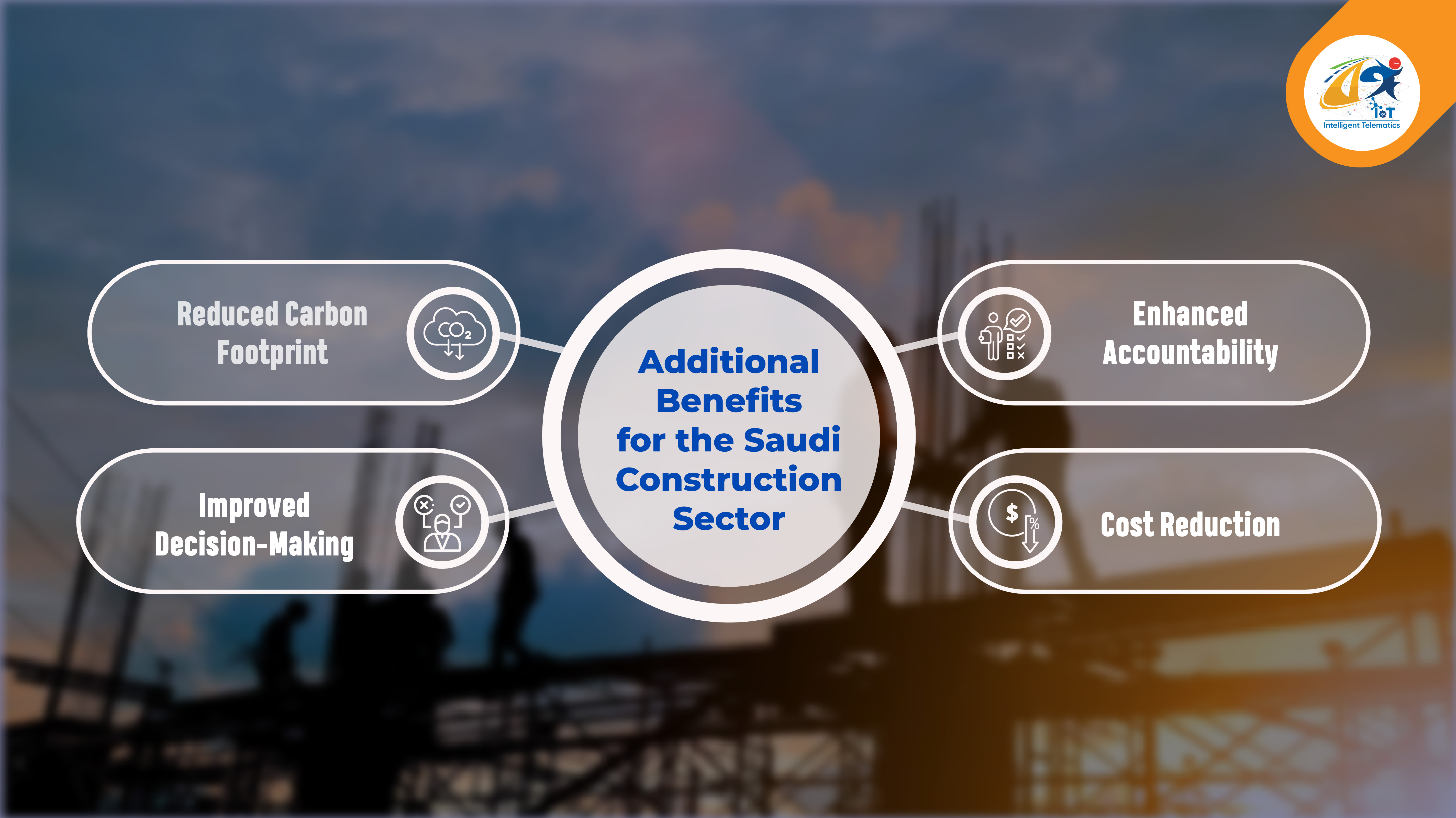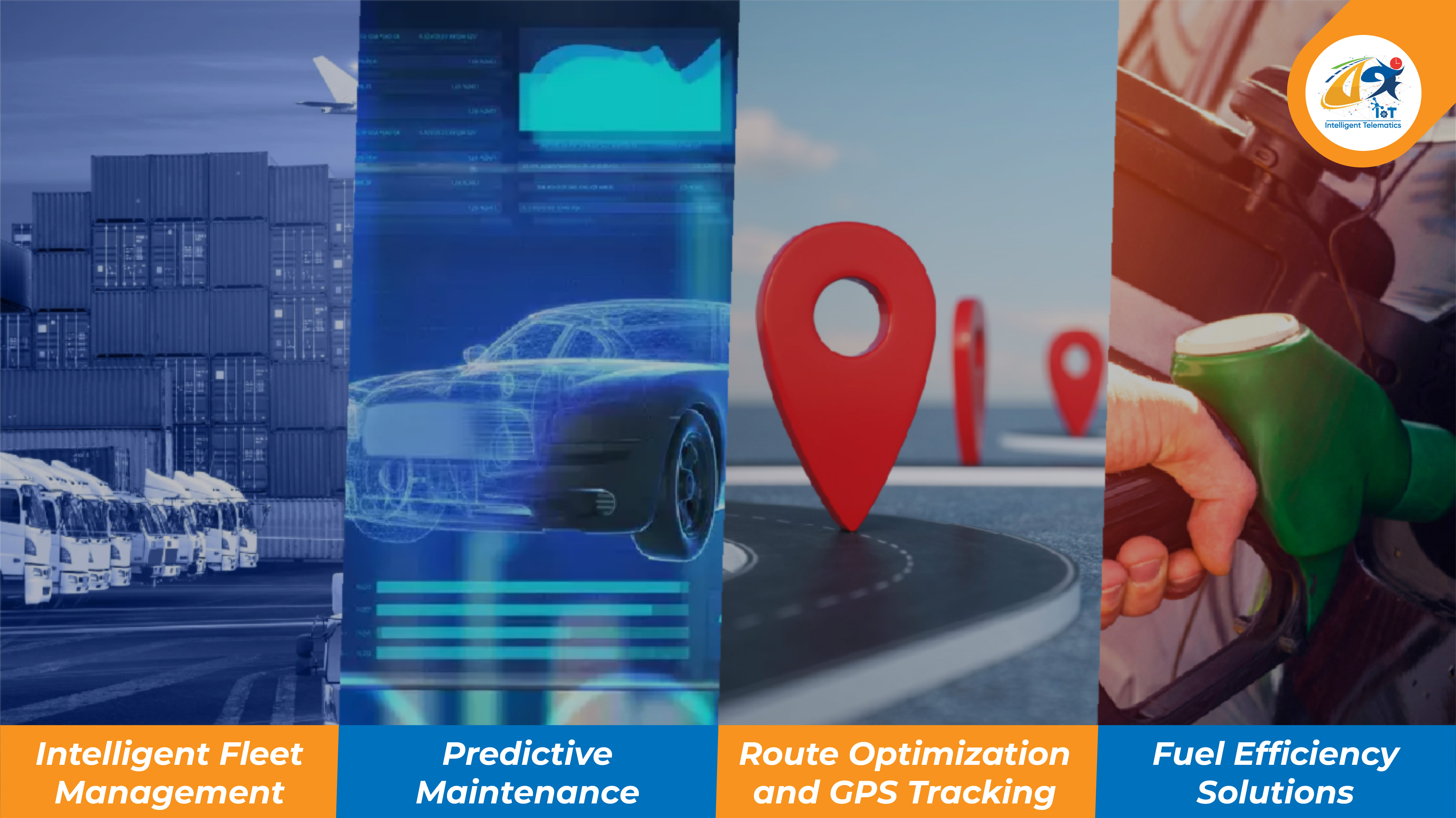
The construction of mega projects in Saudi Arabia is on an unprecedented scale. Cities like NEOM, an ultra-modern metropolis powered by renewable energy, and entertainment hubs such as Qiddiya and the Red Sea Project, are designed to redefine urban living and attract global tourism. These projects require vast fleets of heavy machinery, including excavators, bulldozers, cranes, and trucks, working around the clock to meet tight deadlines.
Managing these fleets manually can lead to inefficiencies, increased fuel consumption, and potential delays. This is where telematics comes in. Telematics solutions provide real-time data on vehicle performance, fuel consumption, location, and maintenance needs, allowing construction companies to optimize operations.
Key Benefits of Telematics in Construction
- Fleet Performance Monitoring: Construction telematics enables managers to monitor the performance of heavy machinery in real time. This includes data on engine health, tire pressure, oil levels, and more. With these insights, operators can ensure that equipment is running at peak efficiency, which minimizes the risk of breakdowns that could delay the project.
- Fuel Consumption Tracking: Fuel is one of the most significant costs for construction companies, particularly on large projects. Telematics systems track fuel consumption in real time, providing insights into which vehicles are consuming more fuel than expected. This data helps managers identify inefficiencies, adjust vehicle usage, and plan for fuel savings, ultimately reducing operational costs.
- Maintenance and Predictive Analytics: Regular maintenance is critical for keeping construction equipment in top shape, especially in Saudi Arabia’s harsh desert environments. Telematics solutions provide maintenance alerts based on usage patterns and vehicle conditions. Additionally, predictive analytics help anticipate future maintenance needs, preventing breakdowns and costly downtime.
- GPS Tracking and Route Optimization: In massive construction sites, tracking the location of heavy machinery and vehicles is essential for operational efficiency. Telematics systems use GPS to track every piece of equipment in real-time, ensuring that machinery is where it needs to be. Route optimization further reduces travel time between locations, improves productivity, and lowers fuel consumption.
- Safety and Compliance: With safety being a top priority in construction, telematics systems also play a role in monitoring driver behavior and adherence to safety protocols. Real-time data on speed, braking patterns, and other driving behaviors can help managers enforce safety policies and reduce the risk of accidents on-site.

How Telematics is Supporting Saudi Arabia’s Mega Projects
The scale and complexity of Saudi Arabia’s megaprojects present unique challenges in terms of logistics, fuel management, and equipment utilization. With telecommunications infrastructure advancing rapidly in Saudi Arabia, telematics is becoming an essential tool to ensure these projects are delivered on time and within budget.
- NEOM: The $500 billion futuristic city of NEOM is one of the most ambitious projects in the world. Spanning 26,500 square kilometers, NEOM is designed to be an intelligent city powered entirely by renewable energy. The sheer scale of construction requires advanced fleet management to avoid delays. By using telematics, project managers can keep tabs on all machinery, optimize equipment usage, reduce idle time, and ensure fuel efficiency across the site.
- Qiddiya: Dubbed the entertainment capital of Saudi Arabia, Qiddiya is expected to draw millions of visitors annually. Construction of this vast complex involves the use of hundreds of heavy vehicles and machinery. Telematics solutions here help to optimize fleet performance, ensuring that equipment is used efficiently and downtime is minimized through predictive maintenance.
- Red Sea Project: The Red Sea Project is a sustainable tourism development aimed at creating luxury resorts on Saudi Arabia’s pristine coastline. As construction is carried out in environmentally sensitive areas, the role of telematics is crucial. By tracking fuel usage, minimizing emissions, and ensuring compliance with environmental standards, telematics systems support the project’s sustainability goals.

Additional Benefits for the Saudi Construction Sector
The integration of telematics in the construction industry in Saudi Arabia goes beyond just cost savings and efficiency. It contributes to the long-term sustainability and growth of the sector in several key ways:
- Reduced Carbon Footprint: As Saudi Arabia moves towards a greener economy, reducing emissions from construction equipment is a priority. By monitoring fuel consumption and optimizing fleet operations, telematics solutions help companies reduce their overall carbon footprint.
- Improved Decision-Making: With real-time data and detailed reports on fleet performance, construction companies are better equipped to make informed decisions regarding resource allocation, fleet upgrades, and maintenance schedules.
- Enhanced Accountability: Telematics systems provide complete visibility over equipment usage, ensuring that every vehicle is used efficiently and safely. This transparency fosters greater accountability among drivers and equipment operators, which can lead to improved performance and safety compliance.
- Cost Reduction: In addition to reducing fuel costs and minimizing maintenance-related downtime, telematics solutions can help construction companies cut costs by improving equipment longevity. With fewer unexpected breakdowns and better maintenance practices, fleets last longer, reducing the need for frequent replacements.

The Future of Telematics in Saudi Arabia’s Construction Industry
As Saudi Arabia continues its journey toward modernization and economic diversification, the construction industry will play a pivotal role in shaping the country’s future. Telematics is already proving to be an indispensable technology in ensuring that the Kingdom’s mega projects are completed efficiently, safely, and sustainably.
Looking ahead, the use of telematics in Saudi Arabia’s construction sector is expected to grow even further as more companies adopt digital solutions to manage their fleets. As the country becomes more connected and smart cities like NEOM rise from the ground, telematics systems will integrate even more seamlessly into the fabric of daily operations, driving innovation and shaping the future of construction in the Kingdom.
How Bongo IoT is Contributing to This Sector
Bongo IoT is at the forefront of driving innovation in telematics solutions within Saudi Arabia’s construction industry. By providing advanced, IoT-powered telematics platforms, Bongo IoT helps construction companies streamline their fleet operations, reduce operational costs, and meet the stringent demands of mega projects like NEOM, Qiddiya, and the Red Sea Project.
Key contributions from Bongo IoT include:
- Intelligent Fleet Management: Bongo IoT’s telematics solutions offer real-time tracking and monitoring of construction fleets, providing insights into vehicle performance, fuel consumption, and maintenance needs.
- Predictive Maintenance: By leveraging data analytics, Bongo IoT helps construction companies schedule maintenance based on vehicle usage and condition, ensuring equipment is always ready and operational, thus reducing costly downtime.
- Route Optimization and GPS Tracking: Bongo IoT’s GPS-enabled telematics systems track the location of every piece of machinery, allowing companies to optimize equipment movement across vast construction sites, improving productivity and minimizing unnecessary travel.
- Fuel Efficiency Solutions: Bongo IoT’s systems provide detailed reports on fuel consumption, enabling companies to identify inefficiencies, optimize vehicle usage, and ultimately reduce fuel costs while contributing to sustainability goals. By integrating these cutting-edge telematics solutions, Bongo IoT ensures that Saudi Arabia’s construction industry can meet its objectives of efficiency, sustainability, and timely project completion.

Conclusion
The construction industry in Saudi Arabia is entering a new era of efficiency and innovation, powered by telematics solutions that offer real-time data on vehicle performance, fuel consumption, and equipment health. As the Kingdom undertakes some of the largest and most ambitious infrastructure projects in the world, telematics will continue to play a key role in optimizing fleet management, improving safety, and reducing costs.
With telematics, Saudi Arabia’s construction companies are better positioned to meet the challenges of delivering mega projects on time and within budget, while also contributing to the country’s broader goals of sustainability and economic diversification. As telematics technology continues to evolve, it will remain a vital tool in building the future of the Kingdom.
🌐Discover more
Visit at:
https://www.bongoiot.com/fleet-management
WhatsApp:
or,
Mail Us:
